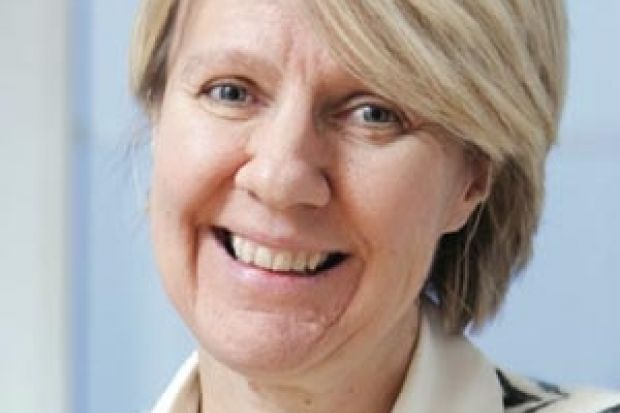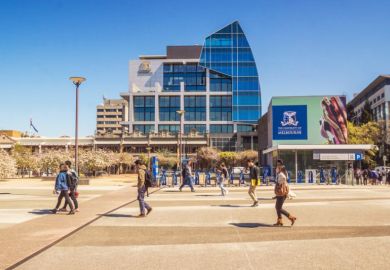Two whistleblowers have disputed Murdoch University’s claim that it “self-identified” student recruitment failings that were investigated by Australia’s higher education regulator.
In a 7 October email, Murdoch vice-chancellor Eeva Leinonen said the Tertiary Education Quality and Standards Agency (Teqsa) had concluded its compliance assessment and was satisfied with the university’s international student admissions and English proficiency requirements.
Professor Leinonen said Teqsa had acknowledged Murdoch’s “continuing improvement agenda” achieved through “strategic initiatives” that had been rolled out since 2016, generating an “important shift in mindset and practice”.
“During the course of the assessment, the university self-identified a number of areas that would benefit from improved document management, record keeping and other processes which we have implemented,” Professor Leinonen told staff. “Our analysis found there was no systemic misapplication of admissions criteria. However, there were some specific cases identified and we immediately implemented remedial changes.”
In a statement issued two days later, Teqsa confirmed its assessment that Murdoch had addressed problems in its international student admissions but said the university had been “at risk of non-compliance” because of an “inconsistent application of its own admissions practices”.
This had resulted in the 2018 recruitment of “some international students who were ill-equipped to progress through their course of study”.
Murdoch’s international operations were spotlighted in a May 2019 episode of ABC TV’s Four Corners current affairs programme, which alleged that the university was profiteering by admitting Indian students with inadequate English-language capabilities. The broadcast aired claims from three Murdoch mathematicians who said their attempts to raise concerns internally had fallen on deaf ears.
Two of the whistleblowers, Duncan Farrow and Graeme Hocking, have disputed Murdoch’s claim that the university resolved these problems internally. “The question arises as to why it took a Teqsa investigation to cause an internal investigation to ‘self-identify’ these issues, when the university management had received multiple warnings from both internal and external sources well before the Teqsa investigation,” the pair said in a joint statement.
“It is very disappointing that the university management is yet to acknowledge, let alone apologise for, the negative consequences of their decisions on the welfare of those students (and staff) affected.”
Times Higher Education understands that details of the Teqsa investigation are outlined in a confidential letter from the regulator to the university. Dr Farrow and Professor Hocking said the document should be released publicly.
The third whistleblower, Gerd Schröder-Turk, acknowledged “positive change” in Murdoch’s admission practices but said he stood by his Four Corners claims. “In our corporate system, universities control entry standards and simultaneously benefit from greater student numbers,” he tweeted.
“This is a conflict of competing interests that requires strong ethical oversight. Giving credence to concerns expressed by academic and professional staff is beneficial for managing that conflict, and is in the interest of academic quality and student welfare.”
Enrolment statistics uncovered by THE show that the number of new students from India multiplied sixfold in 2018. The Department of Home Affairs temporarily downgraded Murdoch’s immigration risk rating the following year.
A Teqsa spokesman said the regulator placed “significant emphasis on promoting and facilitating a culture of effective self-assurance as an integral part of any higher education provider’s operation. However, Teqsa will not hesitate to take action where the interests of student or reputation of the sector are at risk.”
Register to continue
Why register?
- Registration is free and only takes a moment
- Once registered, you can read 3 articles a month
- Sign up for our newsletter
Subscribe
Or subscribe for unlimited access to:
- Unlimited access to news, views, insights & reviews
- Digital editions
- Digital access to THE’s university and college rankings analysis
Already registered or a current subscriber? Login








